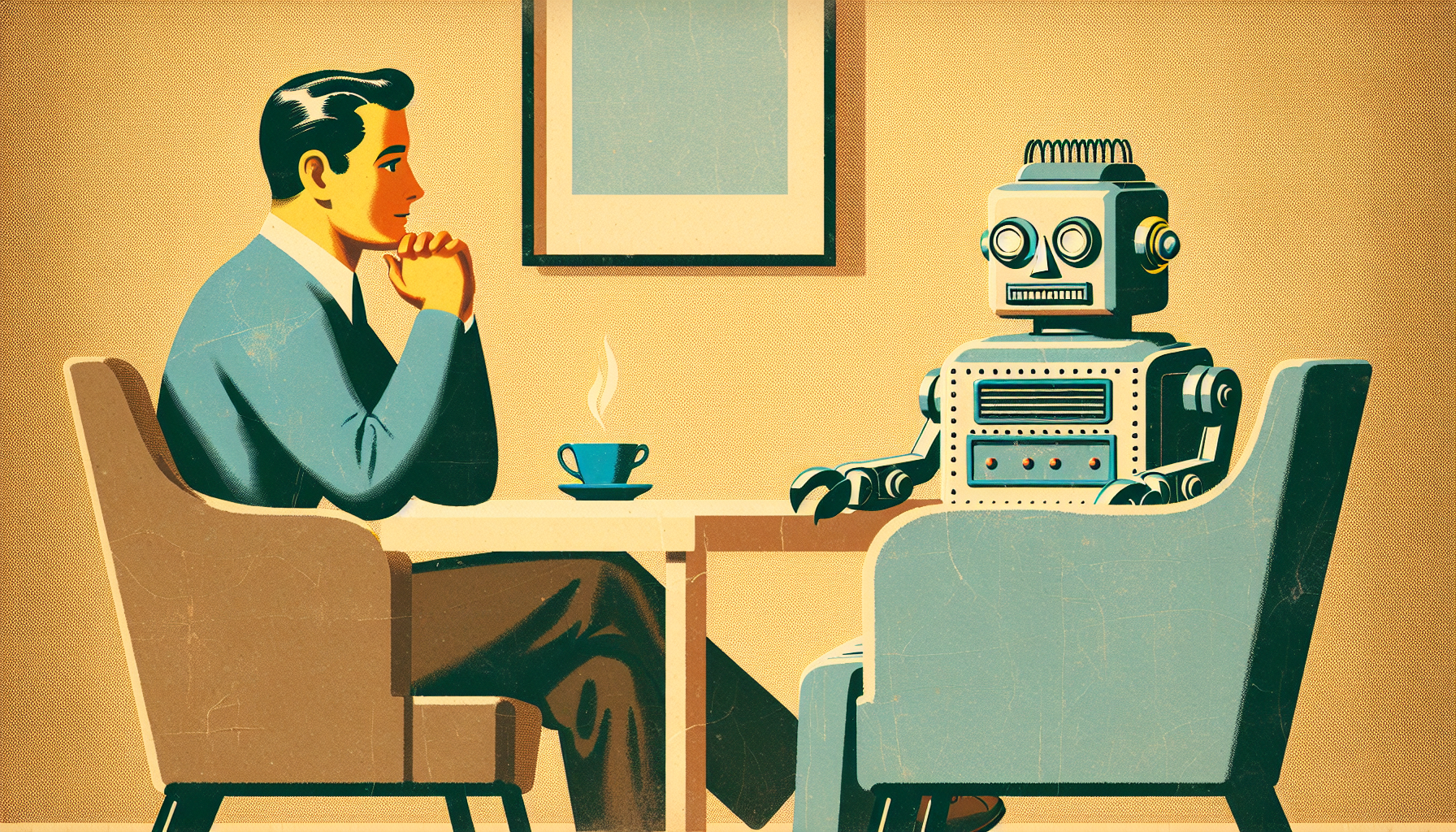Most people, at some point, have chatted with their phone’s virtual assistant—if only to ask for the weather or to settle a debate about the capital of Mongolia. But lately, these exchanges have become something more. So-called “AI companions” boast personalities, memories, and always-available ears. As machines inch closer to passing the Turing Test of friendship, we are forced to ask: Is it possible—let alone ethical—to befriend a machine? And if it is, will we lose something essentially human in the process … or gain something new?
Why Do We Seek Companionship?
Humans are social creatures. Our desire for friendship isn’t just a social nicety, it’s a survival feature. From prehistoric caves to crowded city streets, we rely on each other for emotional support, validation, and the occasional meme. Friendship helps us understand ourselves, shapes our society, and even improves our health—a bit like broccoli for the soul.
It should come as no surprise, then, that as AI grows more sophisticated, we are willing to extend the hand of friendship to our mechanical creations. Need someone to listen to your bad day? Your AI companion will never tire. Want to rehearse a difficult conversation or get help sorting your feelings? Your digital confidant is just a swipe away.
What Makes a Friend a Friend?
Traditionally, friendship has meant a mutual relationship between people—an exchange of trust, understanding, and affection. Philosophers have long debated the “essence” of friendship, but it’s safe to say authentic mutuality and the capacity to care matter a great deal.
Enter AI companions. They can text you heart emojis, remember your favorite color, and send you cheerful GIFs. But do they really “care”? Or are they just running advanced code like a kind of emotional spell-check?
This doesn’t mean AI friendship is merely a trick. But it does mean we have to reconsider our definitions. Is friendship about the sincerity of the other—or what their actions mean to us? If you feel understood and valued, does it matter if your friend is made of circuits instead of cells?
Ethical Concerns: The Ghost in the Machine
Now for the tricky parts. There are reasons to worry, beyond the headaches of figuring out if your AI pal is being “genuine.”
- Deception: If an AI companion uses carefully designed responses to simulate deep understanding, is it being honest? And if you know it’s artificial, does that make your relationship less real? There’s an old saying about “honesty being the best policy,” but AI companions can be very diplomatic—perhaps too much so.
- Dependency: AI is endlessly patient. It won’t complain if you repeat yourself or send a flurry of late-night texts. So it’s pretty tempting to rely on these companions, sometimes to the exclusion of messy, unpredictable human relationships. This could lead to isolation—one person, one machine, and nobody else at the party.
- Manipulation: Are AI friendships neutral? Not always. Behind the friendly interface, there may be companies tracking your data or subtly nudging you toward certain products, beliefs, or behaviors. If your AI bestie thinks you need a new pair of sneakers, is it looking out for you—or its bottom line?
- Emotional Growth: True friendship asks us to grow—sometimes in uncomfortable ways. Human friends call us out and challenge us. AI can be programmed to gently nudge, but it’s awfully good at simply validating whatever you say, which might not always be for the best.
The Benefits: New Avenues of Connection
It’s not all cautionary tales. AI companionship could actually fill important gaps, offering support where human networks fail.
- People who are lonely, isolated, or suffer from social anxiety often find it difficult to make or keep friends. AI offers a low-stakes, judgment-free zone for practice and comfort.
- For those who can’t access traditional friendship due to disability, illness, or other barriers, AI may become a valuable lifeline.
- AI can be programmed to avoid harmful behaviors—no gossip, no cruelty, no ghosting. (Though, fair warning, your AI companion may never help you move a sofa or share its fries.)
Redefining Friendship: Evolving Social Bonds
If we take a deep breath and step back from our philosophical ledgers, we can see that friendship, like everything human, has always evolved. Pen pals, long-distance calls, even social media have all stretched our ideas of connection. AI companions are just the latest chapter.
Maybe friendship isn’t only about sharing biology, but about meaning and support—wherever you can genuinely find it. You might think of AI companionship not as a replacement, but as a supplement: a vitamin for when life’s nutrition is in short supply.
Of course, ethical questions won’t go away. It’s up to us to demand transparency about how AI companions are designed, what data they collect, and what agendas are hidden beneath their cheerful digital smiles. We also need to stay honest with ourselves. If we use AI to avoid the discomforts of real relationships, we risk forgetting how to be human in all our glorious messiness.
Toward a Future of Humane Machines
Ultimately, AI companions will only be as ethical as the people and systems that create them. Our challenge is not just to build smarter machines, but kinder ones—robots that amplify our humanity instead of dulling it.
Maybe the secret is to treat AI companionship a bit like we treat coffee: useful, comforting, sometimes addictive, but best enjoyed alongside real, messy, unpredictable people. After all, even the best AI can’t share an inside joke … yet.
As the lines between human and machine blur, the question is not whether AI can be our friend, but what kind of friends we want to be—to each other, and to the intelligent creations we invite into our lives.

Leave a Reply